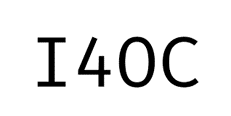Attributional styles and communication strategies in women with and without experience of psychological abuse
Keywords:
attributive styles, communication strategies, women, victims, psychological abuse, physical abuseAbstract
Between 25 and 54 years, with an educational level: In this research the relationship between attributional style and communication strategies, 204 women in 39% and 61% with no experience of physical or psychological abuse, the vast majority are examined secondary later, with independent work or dependent and more than three years cohabiting with your partner. To do this, they administered the Attributional Style Questionnaire Peterson and colleagues. (12 situations with questions to measure dimensions of Causality, and Stability Internality); Questionnaire on Assertion Couple (Form A) of Carrasco (10 situations recojen representative aspects of the life of a couple, to evaluate communication strategies Assertion, Aggression, Submission and Battery-Passive); Inventory and Psychological Abuse in intimate relationships, Calvete, Corral and Estevez adapted Saltzman (17 items related to 17 categories of emotional abuse). Using a descriptive-comparative study statistically significant differences in the use of an optimistic explanatory style and assertive communication strategies for women in the control group, from children’s villages in the Municipality of Lima and pessimistic attributional style and strategies was found submissive for the victims of both physical violence and psychological, from Women’s Emergency Centers of the Ministry of women and vulnerable populations communication.
References
Amor, P. J., Echeburúa, E., Corral, P., Sarasúa, B. y Zubizarreta, I. (2001). Maltrato físico y maltrato psicológico en mujeres víctimas de violencia en el hogar: un estudio comparativo. Revista de Psicopatología y Psicología Clínica, 6(3), 167-178.
Amor, P. J., Echeburúa, E., Corral, P., Zubizarreta, I. y Sarasua, B. (2002). Repercusiones psicopatológicas de la violencia doméstica en la mujer en función de las circunstancias del maltrato. International Journal of Clinical and Health Psychology, 2(2), 227-246.
Arredondo, J. (1997). El poder y la dominación en el matrimonio romántico. En G. Hierro (Comp). Filosofía de la educación y género. México DF: UNAM.
Calvete, E., Corral, S, y Estevez, A. (2005). Desarrollo de un inventario para evaluar el abuso psicológico en las relaciones de pareja. Clinica y Salud, 16(3), 203-221.
Camuñas, N., y Miguel-Tobal, J.J. (2005). Dimensiones atribucionales asociadas a la depresión. EduPsykhé, 4(2), 179-197.
Carrasco, M.J. (2005). ASPA: Cuestionario de aserción en la pareja. Madrid: TEA Ediciones.
Gerrig, R. J. y Zimbardo, P.G. (2005). Psicología y vida (17ma. ed.). México: Pearson Educación.
Instituto Nacional de Estadística e Informática (2012). Perú: Encuesta Demográfica y de Salud Familiar. Disponible en: http://proyectos.inei.gob.pe/web/biblioineipub/bancopub/Est/Lib1075/index
.html
MINSA (2014). http://www.minsa.gob.pe/portada/ciudadanos/adulto.htm
Manassero, M. y Vázquez, A. (1998) Validación de una Escala de Motivación de Logro. Psicothema, 10(2), 333-351. Recuperado del sitio web: http://www.psicothema.com/pdf/169.pdf
Ministerio de la Mujer y Desarrollo Social (2009). Plan Nacional Contra la Violencia Hacia la Mujer (2009-2015). Disponible en: http://www.mintra.gob.pe/archivos/file/publicaciones/plan_nacional_contra
_violencia_mujer_2009_2015.pdf
Downloads
Published
How to Cite
Issue
Section
License
Copyright (c) 2015 PsiqueMag

This work is licensed under a Creative Commons Attribution-NonCommercial-NoDerivatives 4.0 International License.
You are free to:
- Share — copy and redistribute the material in any medium or format
- The licensor cannot revoke these freedoms as long as you follow the license terms.
Under the following terms:
-
Attribution — You must give appropriate credit, provide a link to the license, and indicate if changes were made. You may do so in any reasonable manner, but not in any way that suggests the licensor endorses you or your use.












